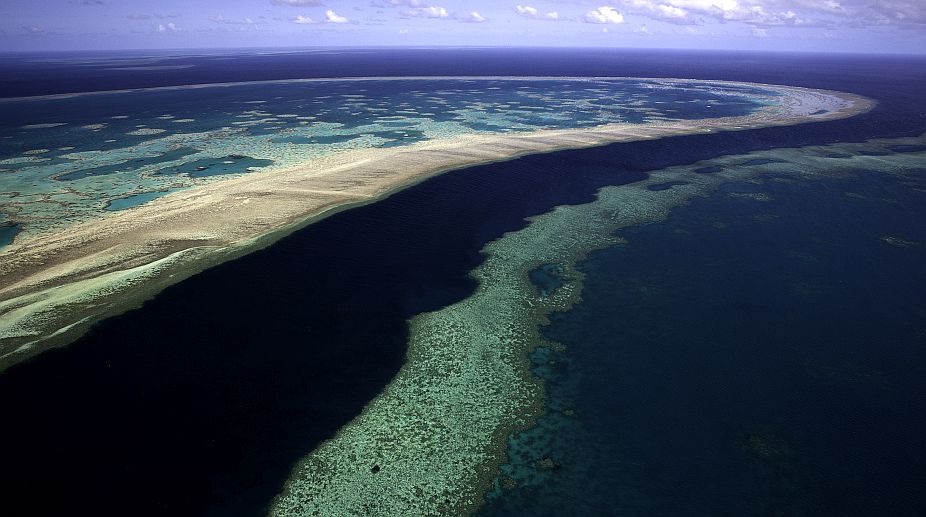Mass coral bleaching on Australia's iconic Great Barrier Reef may cost a whopping USD 1 trillion to the global economy and lead to a catastrophic annual loss of over 1 million visitors to one of the Seven Natural Wonders of the world, scientists warned on Wednesday.
Scientists this week announced that two-thirds of the Great Barrier Reef has been damaged by back-to-back severe bleaching events caused by record-breaking temperatures, adding that the reefs affected last year have zero prospect of recovery.
Intensifying climate change remains the biggest threat to coral reefs around the world, with rising sea surface temperatures driving widespread bleaching events, according to the latest report by Australia's Climate Council.
The report shows worsening bleaching events are also placing tourism and global economies at risk, with the loss of coral reefs potentially costing an astounding USD 1 trillion.
Extensive and ongoing mass coral bleaching and mortality on the Great Barrier Reef in 2016 and now in 2017 should be a wake up call, said Climate Councillor Professor Lesley Hughes.
“The extraordinary devastation being experienced on the Great Barrier Reef is due to the warming of our oceans, driven by the burning of coal, oil and gas. It would have been virtually impossible for this to have occurred without climate change,” Hughes said.
“Repeated events such as those seen in 2016 and 2017 mean that the opportunities for corals to recover are very limited,” she said.
The report also recognised coral reefs as significant economic assets, with research showing that ongoing severe bleaching on the World-Heritage-listed Great Barrier Reef alone could result in the catastrophic loss of more than 1 million visitors to the region annually a figure equivalent to at least USD 1 billion in tourism spending and 10,000 jobs.
“This isn't just an environmental issue. The Great Barrier Reef is one of Australia's greatest economic assets. It's responsible for bringing in more than USD 7 billion each year to our economy, while also supporting the livelihoods of around 70,000 people,” said Hughes.
“Some commentators pit the environment against the economy. A healthy Great Barrier Reef underpins the tourism industry and the jobs that it supports,” she said.
The longest global coral-bleaching event on record, ongoing since 2014, has led to widespread bleaching and death of reefs as pools of very warm water move around the globe, researchers said.
If severe bleaching continues, regions adjacent to the Great Barrier Reef risk losing more than 1 million visitors annually.
Bleaching events are likely to become more frequent and more severe in Australia over the next two to three decades, sparking potentially devastating impacts for the health of the Reef, Climate scientist Professor Will Steffen.
“The only way to protect coral reefs in Australia and around the world is to stop greenhouse gas emissions,” Steffen said.






